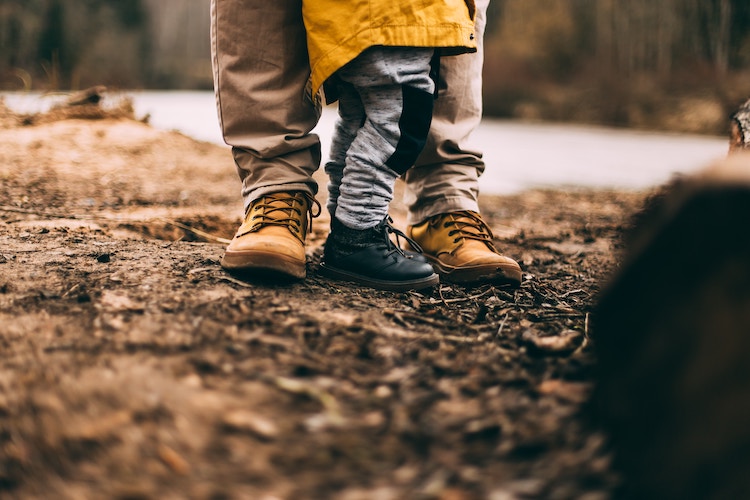
How does family estrangement start?
If you’ve blogged for more than about, ooh, five minutes, chances are you’ve offended someone with your blog.
Me too, friends, me too.
Except in my case I really offended someone with my blog. It’s pretty bad. So bad that I haven’t had any contact with a big chunk of my adopted family for almost three years.
If you’re wondering what the HELL happened, well, you’re not the only one.
Where it Started
As best as I can understand, I wrote a blog post that someone in the family thought was about them. They thought I’d written something that “eviscerated” them in a public forum.
I’d written a post about myself, and my plans for the upcoming holidays. In a long post, I’d briefly touched on how I wanted a quiet holiday season, because it had been a hard year, and sometimes I feel like a failure at big family events, being the only one who’s divorced, who doesn’t have a proper job or a grown-up pension. I said it can be hard, sometimes, because my family is brilliant and supportive but they don’t shy away from telling me when I’m being an idiot. And mostly that’s fine, but other times it’s … a lot.
A day or so later, I got a furious message from a relative saying how dare you eviscerate your family in public.
With the benefit of hindsight, I should have said, “You’re being ridiculous, that’s not what I said. I’m sorry you’re upset but if it’s what you see, then that sounds like a YOU problem.”
But 2019 me was a people pleaser and I was horrified. I tried to explain that it was a misunderstanding, and if that was what they understood from my words, then I’d obviously worded it poorly. My relative sent a couple more irate messages, culminating in them telling me that no matter what I said, I knew what I’d done, and how could I be so disrespectful to their family, especially considering they had always been nothing but kind to me.
Shocked and hurt, I withdrew. I took WhatsApp off my phone, and waited. Things will calm down, I thought.


And So It Ends
I don’t know what I expected, but it wasn’t to find that my relative (and their immediate family) would stop speaking to myself and my daughter.
Three months later, in the New Year, I sent a long letter, apologising. I didn’t get into explanations or anything that felt like an excuse. I just said I could understand why they were hurt, and I accepted responsibility and I was incredibly sorry, and should have written with more care. I told them that we loved them, and missed them, and wanted to fix things.
Nothing.
For a year, I tried to make amends. There were cards and gifts and flowers and thoughtful gestures. Sometimes we got a perfunctory “thanks for the card” a few weeks after we’d sent something. Mostly not, though.
A global pandemic came, my birth mother died, my business almost collapsed — nothing changed.
After another year, I sent a long email and poured out my heart. I explained that, as an adopted person, what was happening was breaking my heart. It was literally the worst thing anyone could do to me. I said I’d do anything they wanted to make things better. We could talk about it, not talk about it, whatever they wanted. Just please can we make things better than this?
After another year, I made the decision to change my name and move on from my former family.
At some point, you have to stop trying. It gets too hard to think of thoughtful gestures for people who think you’re trash. And sometimes you just have to respect what someone wants, or in this case, doesn’t want.
Life Goes On
The thing about trying to mend fences is that every time it doesn’t work, you start to think that maybe you ARE a terrible person. It can be hard to hold onto your self-worth when the people who have known you longest and know you best decide they don’t want to know you.
But life must go on.
And at some point, it’s okay to stop apologising. To stop trying. It’s okay to put your own wellbeing first and recognise that you do not deserve to be treated that way. You are a decent, worthwhile, loving person, and it’s perfectly okay to invest your time and energy in people who see that in you.
As you get some perspective on your situation, you’ll realise that this stuff happens all the time.
The charity Stand Alone estimates that at any given time, one in five British families have someone who is estranged from another family member. Additionally, one in 10 mothers is said to be estranged from at least one adult child. I suspect the figures are even higher in the case of families where children are adopted.
Why does family estrangement happen?
When this all kicked off, I felt guilty, embarrassed and worthless. It hit every sore spot I have around being adopted. Look at me – my family of origin didn’t want me, my marriage failed, and now my adoptive family don’t want me. WOW, I must be a crappy person.
But actually, the more I talk to people, the more I realise how common these splits are. In all sorts of families. And actually, many families don’t have just one estrangement. There is often a pattern of emotional or physical abuse that lies behind family splits and arguments – which might make you feel better about a situation. It’s not necessarily about you. This might just be how that family copes with conflict – by cutting people off.
This doesn’t mean estrangement isn’t tough.
My daughter spent 14 years of her life with aunts and uncles and cousins and second cousins. And now most of those people have disappeared from her life. That’s a hell of a thing to watch your child try to make sense of.
My parents (who are remaining resolutely neutral and ignoring the situation in the most British way you can imagine) have lost the joy of having all their family around them on special occasions. I lost my only surviving sibling. We’re having to adjust to being a smaller family than we were before, and I’m honestly just left counting down the days until we can move, and I don’t need to worry about who I’ll bump into in the supermarket.
It’s a Long Road
Lucky for me, I have friends and parents who provide emotional support (and know that I can be thoughtless, but rarely malicious). This situation has made me grateful for the people who are in my life for keeps.
I think about what will happen in years to come. Quite apart from the immediate hit to my mental health, it’s the sadness down the line that compounds estrangements. I cried when I had to rewrite my will and appoint new executors and guardians for my now- adult child, because we don’t have those people in our life any more. When my family of origin decided I was disposable, they disposed of my child, too. I wonder if they think about that when they sit in church trying to be perfect people.
I can’t say that any of this makes sense to me, because it doesn’t. But I can say we should talk about it more. There’s so little insight into why family estrangements happen, and how they get resolved. Or, if they can’t be resolved, how do we put them into the proper perspective, and move forward?
What I’ve Learned about Family Estrangement
For what it’s worth, I think I’ve learned a few things through the process of family estrangement:
- I think splits often happen because one or both people involved find it really difficult to handle confrontation. That’s especially true if one person is already struggling with other issues like mental health, emotional abuse or depression – they might just not have the mental or emotional energy to deal with yet another hard thing. In this case, could having some act as mediator or family counselling help? Could you resolve the conflict via letters or over the phone?
- What seems like a dramatic reaction to one small event probably isn’t. It’s more likely the result of an unhealthy dynamic that’s built up over time, perhaps with a series of tiny upsets or offence. Family splits often seem trivial but when we look closer, it’s about someone feeling ignored, or slighted or patronised over many years. Understanding broader family dynamics might help you make sense of a situation.
- That said, don’t waste your life trying to understand something that’s just not rational. Remember people are weird and we do strange things because we have complicated feelings and soft spots and flaws, and given that nobody is perfect, it’s a lot easier to forgive someone their flaws than to make sense of them.
- You don’t need to feel ashamed or embarrassed by a family split. These things happen and whether you initiate the split or someone else does, it doesn’t mean you don’t deserve to be happy, or have people in your life that will cherish and appreciate you.
- Keep an open mind and try not to fall into the trap of saying “never” because you’re angry or hurt. In years to come it may be possible to resume some sort of relationship. Even if that doesn’t happen, it can help to know that you didn’t end things on unnecessarily bad terms.
- You CAN apologise, you CAN try to make amends but you CAN’T make someone want to be a part of your life. What you can do is forgive yourself for making a mistake, learn from it, and use that knowledge to have better relationships with people who do want to be in your life.
Be kind to yourself and try to keep an open heart (I’m very much still working on this). You never know when it might be possible to have a healthier, happier relationship with your family in the future.
Trying to move on from family estrangement? These posts might help
If you’re dealing with family drama and wondering how to move past estrangement, you might find these posts from other bloggers helpful:
Alina: Why I’m Happier now I’m Estranged from my Parents
Erica: Dealing with Grief and the Death of an Estranged Parent
Chloe: Talking to Kids about Family Estrangement
Nigel: The older I get, the more it hurts (sibling estrangement)









Hi sally, My goodness I felt every word of that post, I would love to offer you advice that would be useful, sadly it’s been 3years since I wrote that post, and absolutely nothing has changed, we are probably more estranged than ever. I have accepted that it will never be repaired now.
Like you my greatest sadness is my children should have a wider family with at least 8 cousins, but that will never happen now.
I genuinely hope you can find a way forward to repair the family relationships.
Thank you for the link very kind.
I’m really sorry that you’re going through this. It’s very very hard. Especially when there was no malicious intent on your part.
It’s really difficult when you’re writing something, that you think is neutral and breezy but someone misinterprets what you’ve written as a dig at them.
I hope your situation can be resolved, but to be honest, the parting comment from your family member is really quite rude, and I would find that difficult to forgive.
This post was very timely for me. Not about family, but a close group of friends who are like family for us expats. Without going into details, three weeks ago one of the group was really rude and offensive to me. It’s her character that she’s controlling and we all know that she can never apologise, it’s never her fault. She’s had falling outs in the past with all the group except me and they’ve all managed to move past it. We forgive her because in other ways she’s a wonderful friend. But, after over a decade of friendship, it was finally my turn to ‘get it’. Without any apology or even reference to the events in question, and after three weeks of no contact, we are all invited to hers for dinner tonight. The others encouraged me to go. So I’m going. However, it’s taking me a lot of effort to rise above the hurt and try to reframe our friendship in a way that doesn’t make it ok to be treated in the way I was treated. Losing this group would be a big loss in our lives but I’m also entitled to some respect…… I’m still working on it. And I can’t blog about it because she reads the blog – or maybe I should.)
The point of my post is to say that a simple apology would make it all go away. And I agree with you that you can’t do more than apologise.
Oh my goodness I know a couple of people like this, and one is my own mum. It is NEVER her fault! I’ve tried writing her a letter to set things straight after a big upset before now but she doesn’t acknowledge it and acts like it never happened. I finally decided she will never understand me, or want o, so I’ve just distanced myself emotionally. Mostly I think it’s a shame for her really, but there’s no way to change her view.
That seems like a tricky situation but ultimately, yes, I agree that ultimately we need to accept people for who they are (and love them anyway, hopefully). Trying to change someone is just a route to heartache.
Families are difficult. I hope your issues can be resolved as it’s never nice for anyone involved. I was recently estranged from a family member who was more like the sister I never had because I had my ‘story’ put in an online magazine. She just sent me a message that she couldn’t believe I’d done that and didn’t want anything more to do with me. I think I will read through some more of those posts you mentioned. It helps to know you are not the only one.
Oh Anne, that seems unfair, it’s your story to share! It definitely helped me because when my relatives first cut us off, I felt so ashamed as though it must be something really dreadful I’d done that caused it. It was good to realise it’s actually quite common (although sad).
Lots of love Sally x
Thanks love x
This hit a nerve for me as I’ve been estranged from my mother more or less since I was 17 after she kicked me out of home. Although, I didn’t discover the word ‘estranged’ properly until last year. Your last bullet point tang true for me. I apologised and tried everything I could do – despite nothing really being my fault – and in the end I had to walk away and focus on my own relationships, mostly for my children’s sake. It all came to a head last year and I don’t know if there’s a word that means ‘permanently estranged’ but, that’s what we are. I hope your estrangement doesn’t last forever and you end up with all your wider family back in your life.
Oh Donna, that sounds like a really difficult situation, I’m sorry about that. But I think a big thing for me these past few weeks has been accepting what I can and can’t change. And so long as I’m happy that I’ve apologised and made amends, what someone else chooses to do or not do with that is no further reflection on me, if that makes sense.
Beautifully written Sally. I really feel for you and hope the situation is resolved sooner rather than later – you can’t get that time back.
Thanks so much Alex, I appreciate it.
I can completely relate to this and I’m so sorry to read you are going through this too!
I have four siblings and I only really have contact with one sister. To say our relationship is strained is downplaying it. I’ve been gripping on to this relationship for dear life for a while for the sake of my four year old son but am beginning to wonder if this will even do him any good in the long run. So hard to know what to do! Hope you figure it out!
One thing that I’ve asked myself about other toxic relationships (not so much with my sibling) is, “What does my daughter see from watching me remain in this relationship?” If she sees people treating each other badly, or me allowing myself to be treated poorly, or harsh words being spoken, then my personal view is that it’s better for kids not to be around that sort of energy.
What’s been interesting this Christmas is that my daughter herself made the decision to step away from our family because she was unhappy seeing me be treated in ways that she perceived as unfair and unkind. I’m not thrilled that she made that choice, but I told her I respect it, and she’s free to change her opinion at any time, without it being seen as any way disloyal or hurtful to me. That she should make her own decisions about people based on her experience of them, not mine.